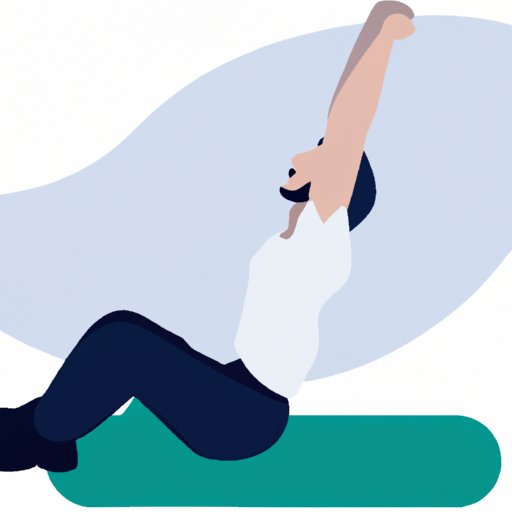
I. Introduction
Mental health issues have become more prevalent in recent years, with millions of people around the world struggling with depression and anxiety. While there are many treatment options available, including therapy and medication, exercise is a powerful tool that can be used to combat the symptoms of mental health conditions. Exercise can help increase endorphins, dopamine, and serotonin, which are chemicals in the brain that are responsible for feelings of happiness and satisfaction. Through regular exercise, individuals can improve their mood, reduce stress, and experience a greater sense of overall well-being.
II. How Exercise Affects Mental Health
Exercise has numerous benefits when it comes to mental health. Not only does it increase the production of endorphins, dopamine, and serotonin, but it also helps reduce levels of stress hormones in the body such as cortisol. Additionally, regular exercise can help improve sleep, boost self-confidence, and provide individuals with a sense of accomplishment. Exercise has been shown to be an effective way to combat symptoms of depression and anxiety, and can even decrease the risk of developing these conditions in the first place.
III. Types of Exercise for Mental Health
While any type of exercise can be beneficial for mental health, there are certain types that are particularly effective. Yoga, for example, has been shown to reduce stress and promote feelings of relaxation. Running can help improve mood and increase feelings of happiness, while strength training has been linked to increased self-esteem and cognitive functioning. It’s important to choose exercises that are enjoyable and sustainable, as this will help ensure that individuals stick to their routine over the long-term.
IV. Improved Cognitive Functioning
In addition to improving mood and reducing symptoms of mental health conditions, exercise has also been shown to improve cognitive functioning. Regular exercise has been linked to improved memory, focus, and creativity. It can also help reduce brain fog and improve overall cognitive performance. Exercise can be particularly beneficial for older adults who are aging and at risk of cognitive decline.
V. Success Stories
There are countless success stories of individuals who have experienced positive changes in their mental health as a result of exercise. For example, one individual struggling with depression found that going for a run every morning helped improve her mood and provided her with a sense of accomplishment for the rest of the day. Another individual struggling with anxiety found that practicing yoga and mindfulness on a regular basis helped reduce feelings of stress and worry. These stories demonstrate how powerful exercise can be for mental health.
VI. Overcoming Obstacles
While exercise can be incredibly beneficial for mental health, some individuals may face obstacles when it comes to incorporating physical activity into their routine. Time constraints and physical limitations can make it difficult for some people to exercise regularly. However, there are solutions to these obstacles. For example, individuals can try working out at home using online videos or they can break up their exercise routine into shorter sessions throughout the day. There are also many low-impact exercises that can be done from a chair or bed.
VII. Resources and Additional Information
For individuals who are interested in incorporating exercise into their mental health routine, there are plenty of resources available. Online websites and apps, such as Yoga with Adriene, offer free workouts and guided meditation sessions. Local gyms and community centers often have fitness classes and support groups specifically for individuals with mental health conditions. It’s important to consult with a healthcare professional before beginning any new exercise routine, particularly if there are pre-existing medical conditions.
VIII. Conclusion
Exercise is a powerful tool for improving mental health. It can help reduce symptoms of depression and anxiety, improve cognitive functioning, and increase feelings of happiness and well-being. By incorporating regular exercise into their routine, individuals can begin to experience these benefits and improve their overall quality of life. It’s important to choose exercises that are enjoyable and sustainable, and to seek out resources and support along the way.




